Me? Underprepared? (He says, literally writing his presentation in the bar at the event…)
Dan Q
Sometimes you just gotta have exactly the right prop for a presentation…
Ever wondered why Oxford’s area code is 01865? The story is more-complicated than you’d think.

I’ll share the story on my blog, of course. But before then, I’ll be telling it from the stage of the Jericho Tavern at 21:15 on Wednesday 17 April as my third(?) appearance at Oxford Geek Nights! So if you’re interested in learning about some of the quirks of UK telephone numbering history, I can guarantee that this party’s the only one to be at that Wednesday night!
Not your jam? That’s okay: there’s plenty of more-talented people than I who’ll be speaking, about subjects as diverse as quantum computing with QATboxen, bringing your D&D experience to stakeholder management (!), video games without screens, learnings from the Horizon scandal, and whatever Freyja Domville means by The Unreasonable Effectiveness of the Scientific Method (but I’m seriously excited by that title).
Anyway: I hope you’ll be coming along to Oxford Geek Nights 57 next month, if not to hear me witter on about the fossils in our telecommunications networks then to enjoy a beer and hear from the amazing speakers I’ll be sharing the stage with. The event’s always a blast, and I’m looking forward to seeing you there!
There are two junctions at which I can join the A40 trunk road from my house. When I drive East, I use the Easternmost of the two; when I drive West, I use the Westernmost; but I almost never drive the stretch of road between them!
A few years ago I generated heatmaps of my movements based on my long-running personal location log and, indeed, it shows a “cool spot” along this section of road too:
It’s inevitable I suppose that there should exist a “road (segment) less-travelled” right on my doorstep, but it still feels strange. Like when you live near a tourist attraction that you never get around to visiting. Except instead of a tourist attraction, I live near a major highway I rarely use.
Maybe I’m missing out on something great. Probably the commuters who use that road to get into and out of Oxford don’t think so.
The week before last I had the opportunity to deliver a “flash talk” of up to 4 minutes duration at a work meetup in Vienna, Austria. I opted to present a summary of what I’ve learned while adding support for Finger and Gopher protocols to the WordPress installation that powers DanQ.me (I also hinted at the fact that I already added Gemini and Spring ’83 support, and I’m looking at other protocols). If you’d like to see how it went, you can watch my flash talk here or on YouTube.
If you love the idea of working from wherever-you-are but ocassionally meeting your colleagues in person for fabulous in-person events with (now optional) flash talks like this, you might like to look at Automattic’s recruitment pages…
The presentation is a shortened, Automattic-centric version of a talk I’ll be delivering tomorrow at Oxford Geek Nights #53; so if you’d like to see it in-person and talk protocols with me over a beer, you should come along! There’ll probably be blog posts to follow with a more-detailed look at the how-and-why of using WordPress as a CMS not only for the Web but for a variety of zany, clever, retro, and retro-inspired protocols down the line, so perhaps consider the video above a “teaser”, I guess?
On Wednesday this week, three years and two months after Oxford Geek Nights #51, Oxford Geek Night #52. Originally scheduled for 15 April 2020 and then… postponed slightly because of the pandemic, its reapparance was an epic moment that I’m glad to have been a part of.
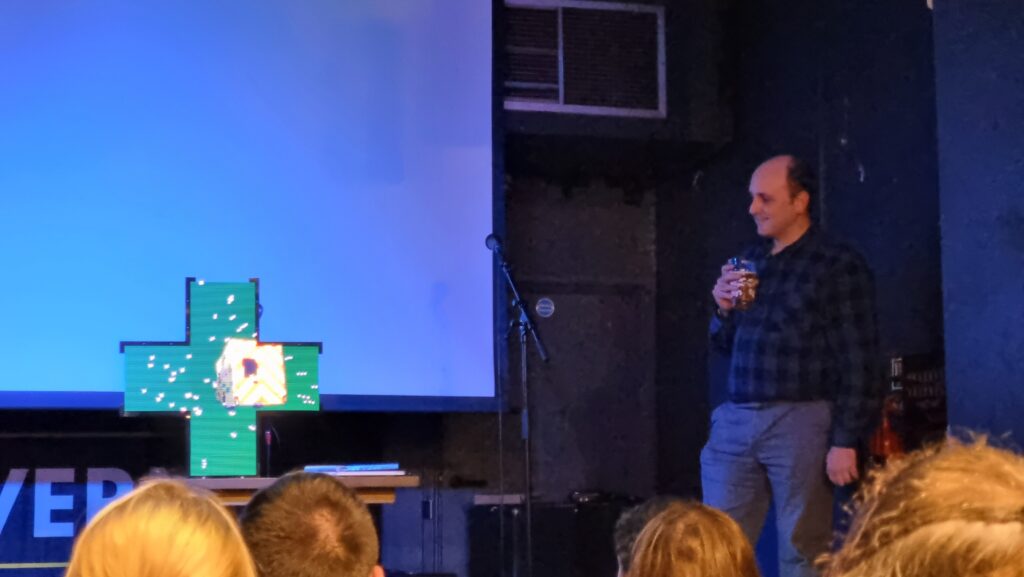
Ben Foxall also put in a sterling performance; hearing him talk – as usual – made me say “wow, I didn’t know you could do that with a web browser”. And there was more to learn, too: Jake Howard showed us how robots see, Steve Buckley inspired us to think about how technology can make our homes more energy-smart (this is really cool and sent me down a rabbithole of reading!), and Joe Wass showed adorable pictures of his kid exploring the user interface of his lockdown electronics project.
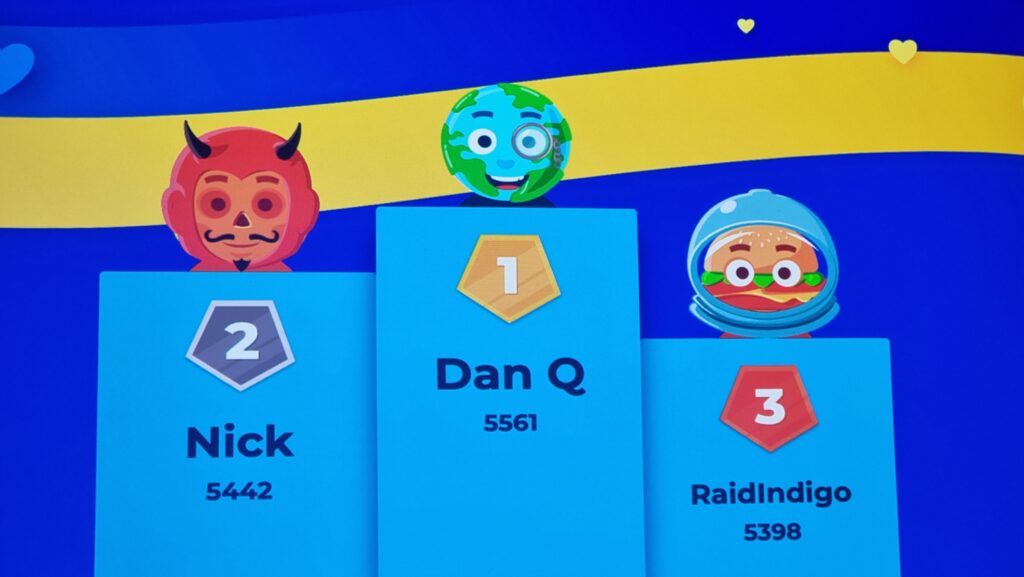
But mostly I just loved the chance to hang out with geeks again; chat to folks, make connections, and enjoy that special Oxford Geek Nights atmosphere. Also great to meet somebody from Perspectum, who look like they’d be great to work for and – after hearing about – I had in mind somebody to suggest for a job with them… but it looks like the company isn’t looking for anybody with their particular skills on this side of the pond. Still, one to watch.
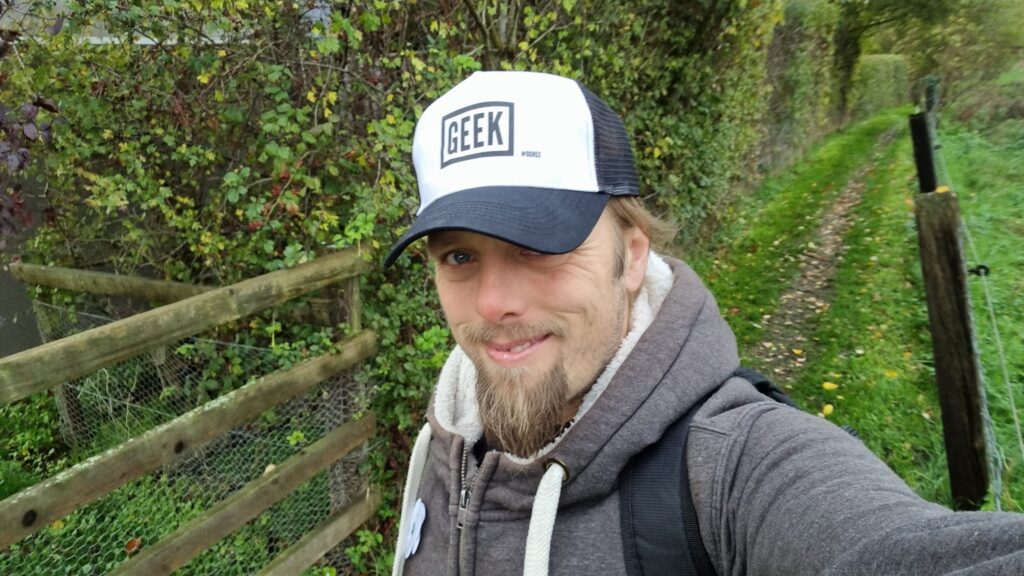
Huge thanks are due to Torchbox, Perspectum and everybody in attendance for making this magical night possible!
Oh, and for anybody who’s interested, I’ve proposed to be a speaker at the next Oxford Geek Nights, which sounds like it’ll be towards Spring 2023. My title is “Yesterday’s Internet, Today!” which – spoilers! – might have something to do with the kind of technology I’ve been playing with recently, among other things. Hope to see you there!
This afternoon, the kids and I helped with some citizen science as part of the Thames WaterBlitz, a collaborative effort to sample water quality of the rivers, canals, and ponds of the Thames Valley to produce valuable data for the researchers of today and tomorrow.
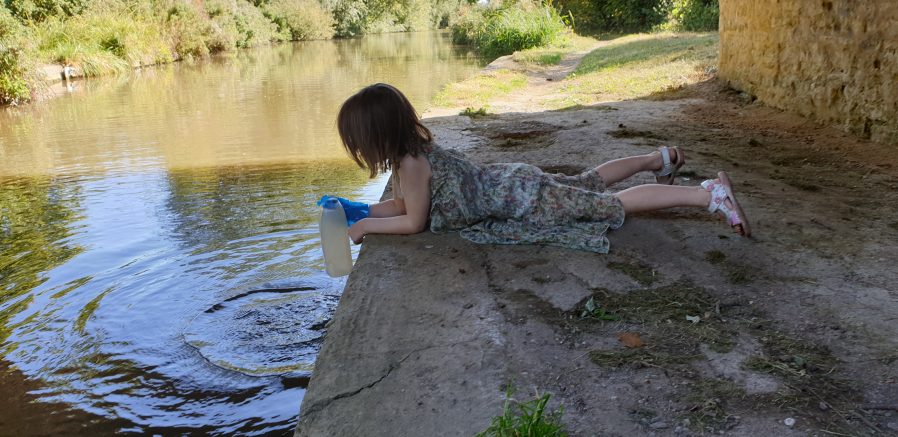
My two little science assistants didn’t need any encouragement to get out of the house and into the sunshine and were eager to go. I didn’t even have to pull out my trump card of pointing out that there were fruiting brambles along the length of the canal. As I observed in a vlog last year, it’s usually pretty easy to motivate the tykes with a little foraging.
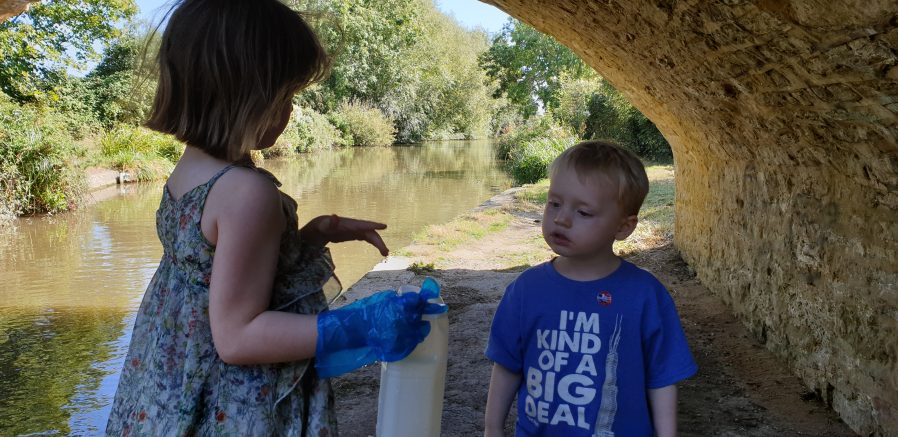
The EarthWatch Institute had provided all the chemicals and instructions we needed by post, as well as a mobile app with which to record our results (or paper forms, if we preferred). Right after lunch, we watched their instructional video and set out to the sampling site. We’d scouted out a handful of sites including some on the River Cherwell as it snakes through Kidlington but for this our first water-watch expedition we figured we’d err on the safe side and aim to target only a single site: we chose this one both because it’s close to home and because a previous year’s citizen scientist was here, too, improving the comparability of the results year-on-year.
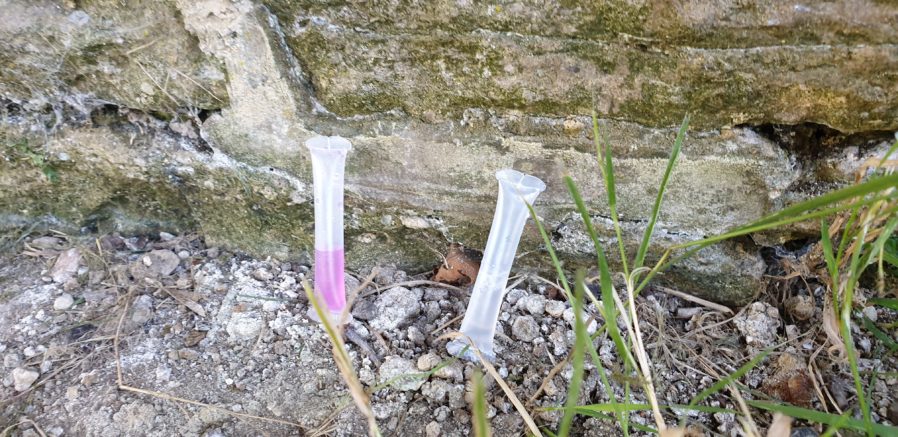
Plus, this expedition provided the opportunity to continue to foster the 5 year-old’s growing interest in science, which I’ve long tried to encourage (we launched bottle rockets the other month!).
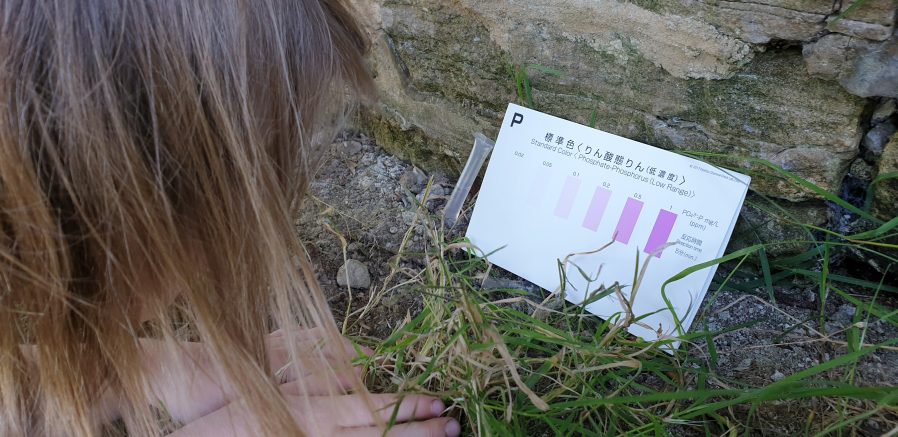
Our results are now online, and we’re already looking forward to seeing the overall results pattern (as well as taking part in next year’s WaterBlitz!).
Well into the afternoon and the party is still on.
09:20 and the revellers – most of whom have been partying all night – are still at it outside the Clarendon Building on Broad Street.
Oh, go on, one more 360° photo: view from @NuffieldCollege’s (library) tower, ten stories above the #Oxford castle quarter.
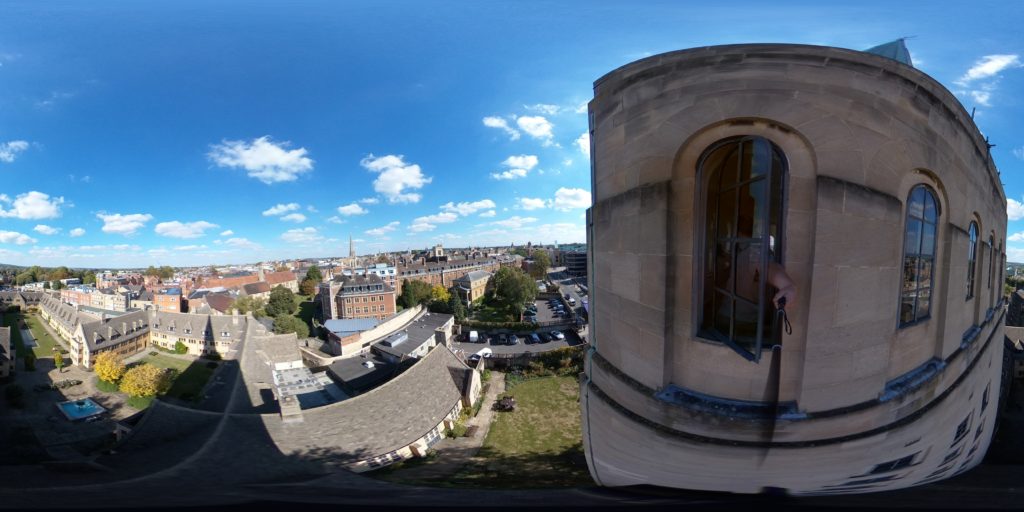
Walking around @NuffieldCollege at lunchtime: love this long pond.
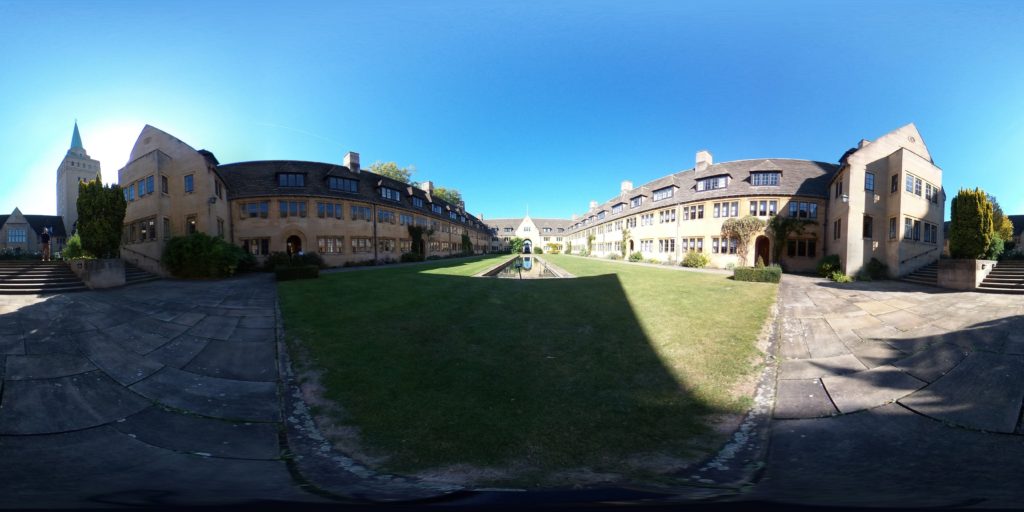
Lunchtime at @NuffieldCollege gave me another excuse to snap some 360° photos; this one’s part of the quad.
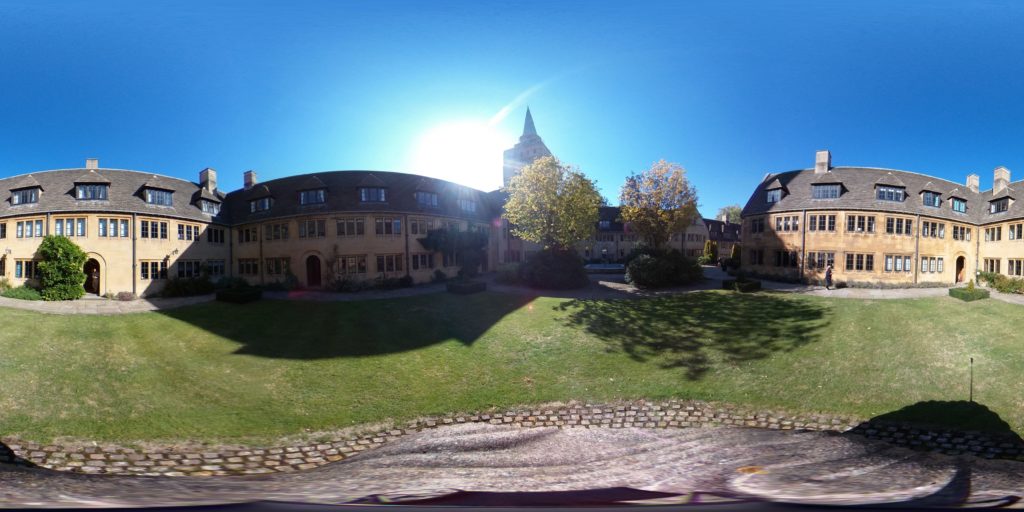
This article is a repost promoting content originally published elsewhere. See more things Dan's reposted.
Save the dates folks!
On Saturday 22nd September and Sunday 23rd September we will be having the first ever Oxford IndieWebCamp!
It is a free event, but I would ask that you register on Eventbrite, so I can get an idea of numbers.
IndieWebCamp is a weekend gathering of web creators building & sharing their own websites to advance the independent web and empower ourselves and others to take control of our online identities and data.
It is open to all skill levels, from people who want to get started with a web site, through to experienced developers wanting to tackle a specific personal project.
I gave a little presentation about the Indieweb at JS Oxford earlier this year if you want to know more.
Huge thanks to our sponsors for the event, Haybrook IT and White October.
I couldn’t be more excited about this! I really hope that I’m able to attend!
It’s been a while since I last hid geocache containers and it felt like it was time I gave a back some more to the community, especially as the “village” I live in has a lower cache density than it deserves (conversely, Oxford City Centre is chock-full of uninspiring magnetic nanos – although it’s improving – and saturated with puzzle caches that ultimately require a trek well outside the ring road). I’ve never been a heavyweight score-counting ‘cacher, but I’ve always had a soft spot for nice containers as large as their hiding place will permit coupled with well thought-out pieces of local interest, and that’s the kind of cache I wanted to add to my local area.

So imagine my joy when I discover a little-known piece of history about my village: that for a few years in the 1930s, we used to have a zoo! And I’m not talking about something on the scale of that place with the meercats that we used to go to: I’m talking about a proper zoo with lions and tigers and bears (oh my!). Attractions like Rosie the elephant and Hanno the lion would get mentioned in the local newspapers at every excuse, and a special bus service connected Oxford city centre to the entrance to the zoo, just outside then (then much-smaller) Kidlington village.

Taking advantage of my readers’ card at the Bodleian Library, I was able to find newspapers and books and piece together the history of this short-lived place. Of particular interest were the unusual events of January 1937, when three wolves escaped from the zoo and caused chaos in the surrounding village and farms for several days. In a tale that sounds almost like a Marvel Comic origin story, the third wolf was eventually shot by local press photographer Johnny Johnson who chased the animal down on a borrowed bicycle.
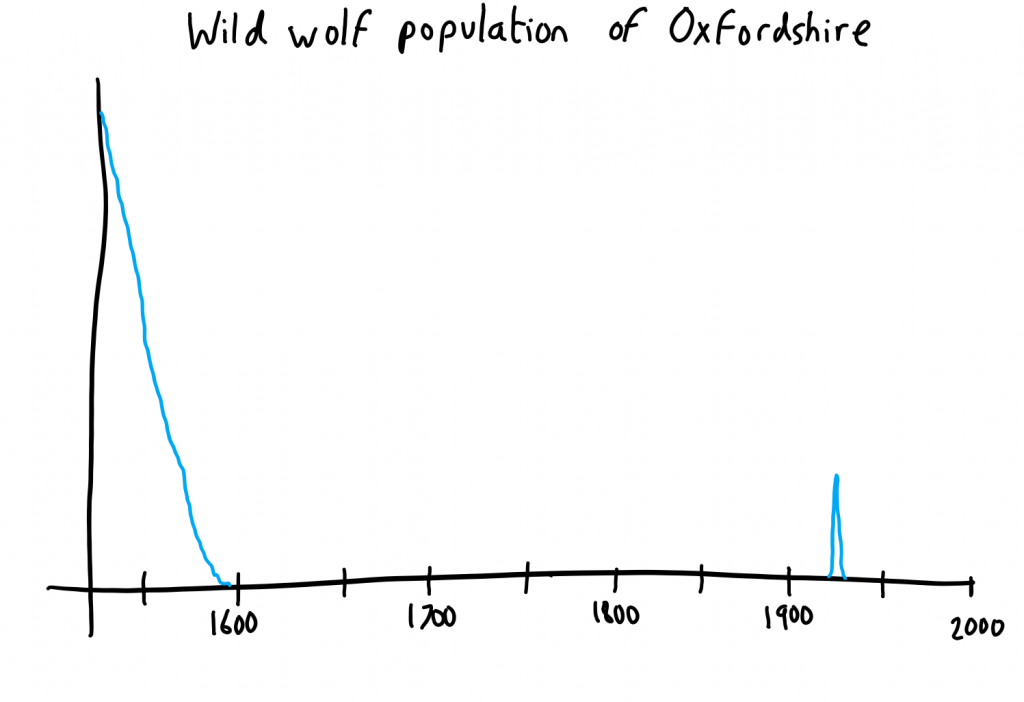
This formed the essence of our new geocaches: we planned four geocaches –

Soon after the first three caches went live they were found by a local ‘cacher whose hides I’ve enjoyed before. She had nice things to say about the series, so that’s a good sign that we’re thinking in the right kind of direction. The bobbin – who’s taken a bit of an interest in local history this month and keeps now asking about the ages of buildings and where roads used to go and things – is continuing to help me set out places to hide the parts of the final cache in the series, Oxford’s Wild Wolf Three, so further excitement no-doubt awaits.